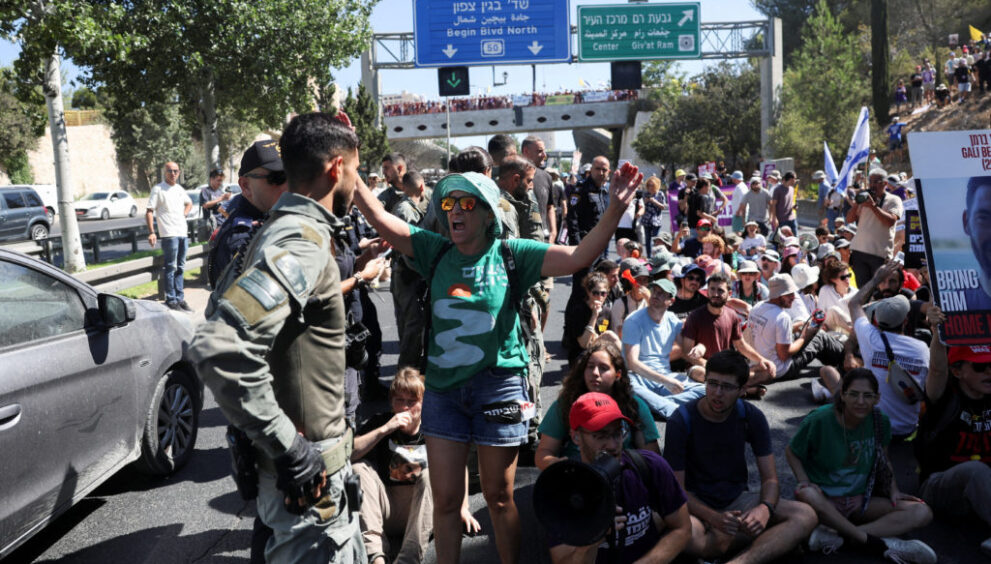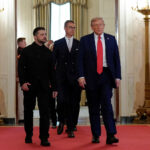Widespread protests broke out across Israel early Sunday morning after families of Israeli hostages called for a nationwide strike, urging the immediate release of all those still held captive.
The protests officially began at 6:29 a.m., a time chosen to reflect the exact moment when militants breached the Gaza border on October 7, 2023 — an attack that led to widespread violence and kidnappings, triggering the ongoing conflict.
The strike and demonstrations were organised by the October Council, a group representing hostage families and relatives of those killed in the war. In Tel Aviv’s Hostages Square, hundreds of people gathered and unfurled a large Israeli flag imprinted with the faces of those still held in captivity. Demonstrators then moved to block major roads, including key highways and intersections across the country. In Jerusalem, protesters marched from the Hebrew University’s Givat Ram campus and obstructed traffic on Begin Boulevard.
Some activists also demonstrated outside the homes of government ministers, expressing frustration over the lack of a comprehensive agreement to secure the hostages’ release and bring an end to the conflict.
Organisers reported that around 200 buses of demonstrators were expected to arrive at Hostages Square throughout the day. Business leaders and public figures were personally invited by the families to stand in solidarity with their cause. During what they called the “Day of Stoppage,” organisers pledged to reveal the next steps in their campaign for the hostages’ return.
Protests spanned the entire country — from Eilat in the south to Kiryat Shmona in the north.
In a joint message at the start of the strike, family members of three hostages expressed hope that those being held would somehow hear the voices of their fellow citizens and know they have not been forgotten. “Hold on,” they said, marking the 681st day of captivity.
The Israeli President made a visit to Hostages Square with his wife, reaffirming the country’s commitment to bringing the captives home. He expressed deep concern for their well-being and called for international pressure to be placed on those responsible for holding them. He criticised what he described as global hypocrisy, urging world leaders to demand the hostages’ immediate release before considering any negotiations or aid.
A prominent opposition figure encouraged citizens to participate in the strike, emphasising that it was not a political act but a gesture of unity and compassion toward the hostage families.
While the country’s main labor union did not officially join the strike, it stated it would support employees who chose to take part. The union explained that a full strike might politicise the issue too heavily, though its leadership expressed strong emotional support for the hostage families.
Later in the day, a prayer service was planned at Hostages Square, followed by a march from the Tel Aviv–Savidor Center train station back to the square for a final rally expected to conclude by 8 p.m.
Despite widespread public backing, not all voices supported the protests. One senior government minister criticised the demonstrations, arguing they ultimately aid the enemy by undermining national unity and security.



